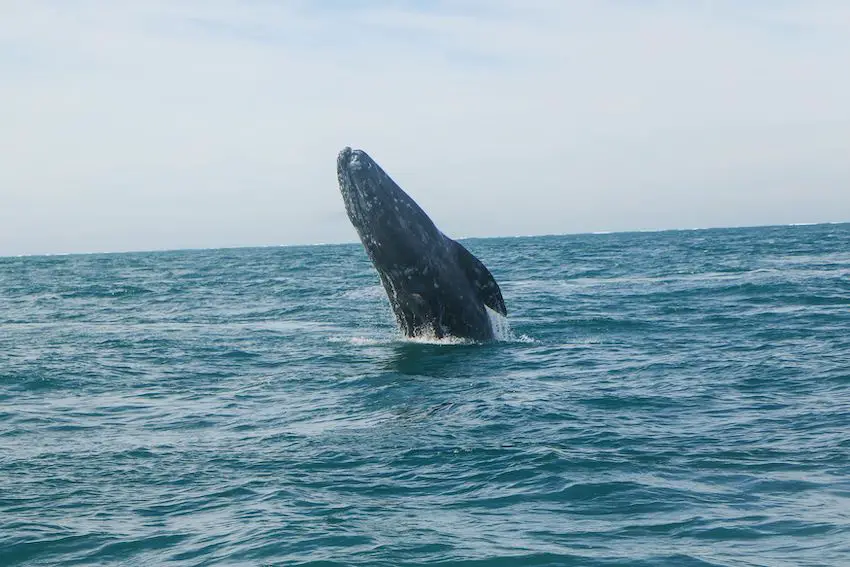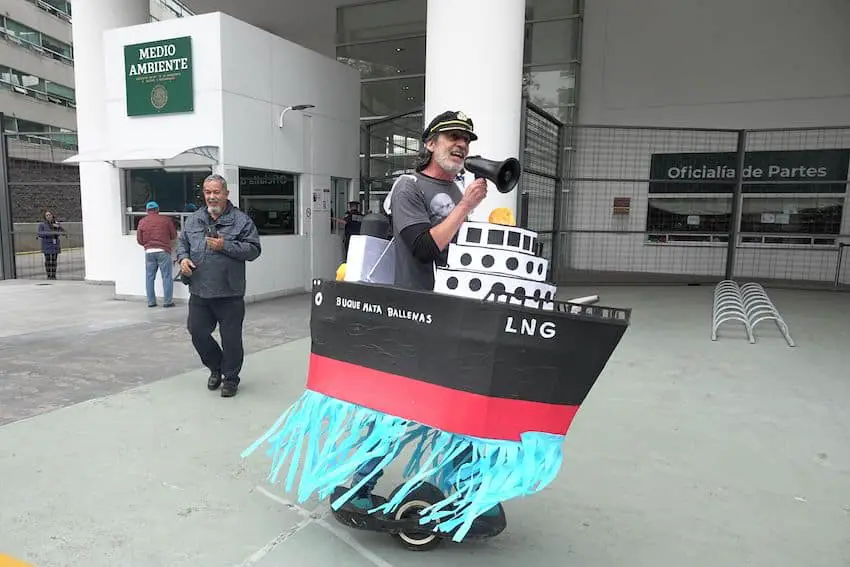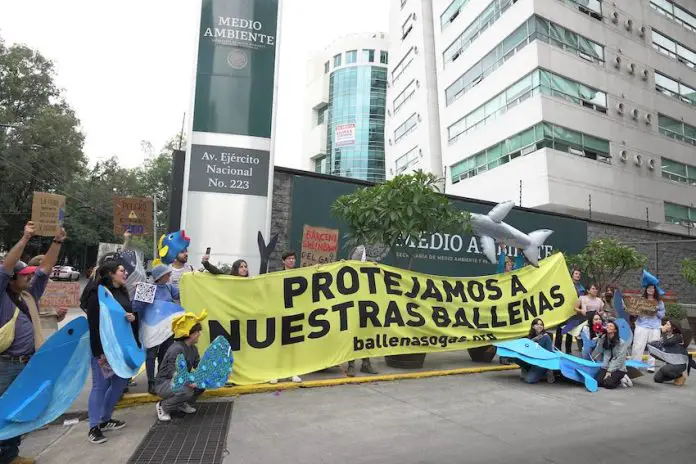Citing concerns over its impact on the Gulf of California, environmental groups are urging the Mexican government to cancel Mexico Pacific’s LNG megaproject in Sonora, a planned liquefied natural gas (LNG) plant and export terminal.
The US $14 billion project led by the Houston-based company would build the large-scale natural gas liquefaction terminal in Puerto Libertad and a pipeline stretching 800 kilometers to transport natural gas from the Permian Basin in Texas to the plant.

The LNG produced in Puerto Libertad would then be exported via 300-meter-long ships to markets in Asia — thereby more easily connecting U.S. shale gas with Asian markets.
Mexico Business News wrote that the project “marks the largest foreign private investment in [Mexico’s] history for a project of this kind” and that it would reshape market dynamics.
Mexico Pacific’s 400-hectare Saguaro Energía LNG facility is expected to produce approximately 15 million tonnes of LNG annually.
“The initiative positions Mexico as the fourth-largest LNG exporting country and a key contributor in meeting the critical energy security needs of the region,” MPL President Alberto Alonzo told the publication.
Trumpeted last year by former President Andrés Manuel López Obrador, the project is expected to create jobs for Mexicans, facilitate infrastructure development and generate state and federal tax revenues.
Puerto Libertad is a small fishing town that is already home to one of the largest thermoelectric plants in Mexico, managed by the Federal Electricity Commission (CFE).

On Tuesday, a coalition of more than 30 environmental groups staged a protest outside Mexico’s Environment and Natural Resources Ministry (Semarnat) in Mexico City. Many of them were dressed as whales, dolphins and sharks.
They argue that the project poses significant risks to marine life in the Gulf of California, known as the “Aquarium of the World” due to its rich biodiversity.
According to Greenpeace and other environmental protection NGOs, the area is home to 12,105 species, including 39% of the world’s marine mammals, including whales, dolphins and sharks.
The introduction of LNG tankers and the construction of the liquefaction terminal could disrupt these species’ habitats with noise pollution, the risk of ship collisions and potential gas spills, activists said. The ships that would transport the gas product to Asia are as long as 12 adult whales.
Also, to extract the natural gas in Texas, the project involves fracking, a controversial method criticized for its extensive water use and environmental hazards.
Greenpeace and other organizations highlight that fracking contributes to groundwater contamination and accelerates climate change by releasing methane, a potent greenhouse gas.
The activists on Tuesday delivered a letter to Environment Minister Alicia Bárcena, calling for the project’s cancellation. The letter asked her to safeguard the interests and well-being of the Mexican population and its natural resources and not the economic interests of foreign companies.
The activists warned that the frequent passage of LNG tankers through the Gulf would endanger marine life, particularly whales, which rely on sound for communication and navigation.
Moreover, they point out that the proposed pipeline will cross mountains, rivers, streams, communities and areas of ecosystemic importance.
The coalition also expressed concerns about the project’s contribution to greenhouse gas emissions and called on President Claudia Sheinbaum to reject the initiative.
MPL last year signed an agreement with the government of Sonora to move forward on the project, according to the news source NS Energy Business. It has received official endorsement from Mexico’s federal government, including environmental permits, the publication said.
Construction has not yet begun, according to Mongabay, a nonprofit website focused on conservation and the environment.
If it moves forward, the project will become a pillar of the Sonora Plan, aimed at fostering economic prosperity and clean energy development in northwest Mexico. The plan was announced by the Mexican government at the North American Leaders’ Summit last year.
With reports from El Universal, Animal Politico, El Sud Californiano and Mongabay
